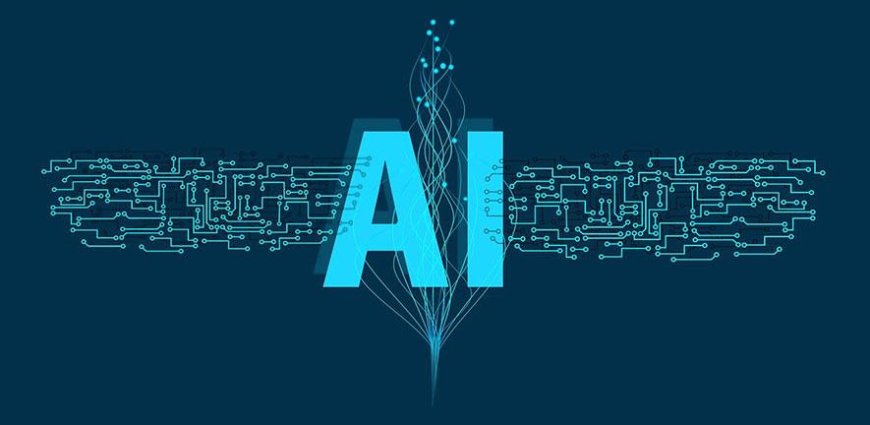Essential Skills for a Career in AI
Discover the essential skills needed for a successful career in AI. Explore key competencies, from machine learning to data analysis, and learn how to stay ahead in this dynamic field.

Artificial Intelligence (AI) is revolutionizing industries across the globe, from healthcare and finance to entertainment and transportation. As AI technologies continue to advance, the demand for skilled professionals in this field is on the rise. If you're considering a career in AI or looking to enhance your existing skills, it's crucial to understand the essential skills that can set you on the path to success in this exciting and dynamic field.
Programming and Coding Skills
Programming and coding skills form the cornerstone of a career in artificial intelligence (AI). AI systems are essentially software applications that use sophisticated algorithms to perform tasks, make predictions, and learn from data. Therefore, a strong foundation in programming languages is crucial for those looking to work in this field.
Python, in particular, is the de facto language for AI development. Its simplicity, readability, and a vast ecosystem of libraries and frameworks make it the go-to choice for AI professionals. R and Julia are also used in specialized AI applications, but Python's versatility makes it a preferred option.
Proficiency in programming languages allows AI engineers and data scientists to create, implement, and maintain AI models. This involves writing code to preprocess and manipulate data, develop machine learning algorithms, and fine-tune neural networks. Coding skills are essential for building applications that leverage AI, whether it's a recommendation system for an e-commerce platform, a computer vision application for autonomous vehicles, or a natural language processing tool for language translation.
Furthermore, coding proficiency extends to understanding and using AI-specific libraries and frameworks. TensorFlow and PyTorch, for instance, are widely used deep learning frameworks that provide high-level APIs for building and training neural networks. Being skilled in these frameworks enables professionals to work efficiently and effectively when developing complex AI models.
Machine Learning and Deep Learning
Machine learning is a subset of artificial intelligence (AI) that focuses on the development of algorithms and models that enable computer systems to learn and make predictions or decisions based on data without being explicitly programmed. In other words, it's the practice of training machines to improve their performance on a specific task through experience. Machine learning can be broadly categorized into three types:
Supervised Learning: In supervised learning, the algorithm is trained on a labeled dataset, where each input data point is associated with a corresponding output or target. The goal is to learn a mapping from inputs to outputs, making it suitable for tasks like classification and regression.
Unsupervised Learning: Unsupervised learning deals with unlabeled data, where the algorithm aims to find hidden patterns or structures within the data. Clustering and dimensionality reduction are common applications of unsupervised learning.
Reinforcement Learning: Reinforcement learning involves an agent that learns to make decisions by interacting with an environment. It receives feedback in the form of rewards or punishments, allowing it to learn optimal strategies over time. Reinforcement learning is used in areas like robotics and game playing.
Deep Learning:
Deep learning is a subfield of machine learning that focuses on artificial neural networks, particularly deep neural networks with multiple layers (hence the term "deep"). Deep learning algorithms attempt to mimic the structure and function of the human brain by using layers of interconnected nodes or neurons to process and extract features from data. Some key points about deep learning include:
Neural Networks: Deep learning relies heavily on artificial neural networks, which are composed of layers of interconnected neurons. These networks can range from shallow architectures with just a few layers to deep architectures with many layers.
Feature Learning: Deep learning models are excellent at automatically learning and extracting relevant features from raw data, reducing the need for manual feature engineering.
Image and Speech Recognition: Deep learning has achieved remarkable success in image recognition, speech recognition, and natural language processing tasks. For instance, convolutional neural networks (CNNs) are commonly used for image analysis, while recurrent neural networks (RNNs) excel in sequential data tasks.
Mathematics and Statistics
Mathematics and statistics serve as the bedrock upon which the entire field of artificial intelligence is built. Proficiency in these areas is indispensable for anyone aiming to excel in AI.
Linear algebra plays a pivotal role in AI, as it provides the mathematical framework for understanding and manipulating data. Concepts like vectors, matrices, and linear transformations are fundamental for tasks such as feature extraction, dimensionality reduction, and optimization. Without a solid grasp of linear algebra, it becomes challenging to work with AI models effectively.
Calculus is another cornerstone of AI, particularly in the context of optimization. Techniques like gradient descent, which underlie the training of machine learning models, rely heavily on calculus. Understanding derivatives and integrals is crucial for fine-tuning algorithms and achieving convergence in learning.
Probability and statistics are at the heart of many AI applications. AI practitioners use statistical concepts to make sense of data, estimate model parameters, and make predictions. Concepts like probability distributions, hypothesis testing, and regression analysis are indispensable tools for data scientists and machine learning engineers.
Data Handling and Preprocessing
Data is the lifeblood of AI. You must be skilled in data handling, including data collection, data cleaning, and data preprocessing. This involves techniques for handling missing data, dealing with outliers, and scaling or normalizing features to ensure the data is suitable for training machine learning models.
Domain Knowledge
Domain knowledge refers to specialized expertise in a particular industry or field. In the context of a career in AI, having domain knowledge is like having a secret weapon that can significantly enhance your ability to develop effective AI solutions tailored to specific industries or applications. Here are some paragraphs highlighting the importance of domain knowledge in AI:
Custom-Tailored Solutions: Domain knowledge enables AI professionals to create custom-tailored solutions that address the unique challenges and requirements of a specific industry or domain. For example, an AI engineer with a deep understanding of healthcare can develop predictive models for patient diagnosis, while someone with expertise in finance can design algorithms for stock market prediction. This knowledge allows AI systems to produce more relevant and accurate results.
Improved Data Processing: Domain experts have a keen sense of the data relevant to their field. They know where to find it, how to interpret it, and which variables are critical. This expertise is invaluable when it comes to data preprocessing and feature engineering, as it can help in selecting the right features and data sources to improve the performance of AI models.
Reduced Time-to-Insight: Domain knowledge accelerates the learning curve for AI professionals. Instead of spending extensive time researching the intricacies of an industry, those with domain expertise can dive directly into the development process. This efficiency can be a game-changer in rapidly evolving sectors where timely insights and solutions are critical.
Problem-Solving and Critical Thinking
In the realm of artificial intelligence, problem-solving and critical thinking skills are like the compass and map that guide AI professionals through the labyrinth of complex challenges. These skills are the foundation upon which innovative AI solutions are built, and they play a pivotal role in shaping the future of AI technology.
AI problems are rarely straightforward; they often involve intricate data sets, ambiguous goals, and the need to navigate uncharted territory. Problem-solving in AI begins with defining the problem itself. Professionals must dissect the issue, identify relevant variables, and determine what success looks like. This initial phase often requires a blend of domain expertise and technical acumen to frame the problem accurately.
Once the problem is defined, critical thinking comes into play. AI practitioners need to assess different approaches and algorithms, weighing the pros and cons of each. They must anticipate potential pitfalls, biases, and ethical concerns that may arise during the development and deployment of AI systems. Critical thinking encourages a proactive approach to addressing these issues before they become insurmountable obstacles.
Ethics and Bias Awareness
In the rapidly evolving world of artificial intelligence (AI), ethics and bias awareness are integral components that cannot be overlooked. As AI systems become more ingrained in our daily lives, from decision-making in finance to healthcare diagnoses, they have the potential to reinforce and perpetuate biases present in the data they are trained on. It is incumbent upon AI professionals to address these ethical considerations and actively work towards creating AI systems that are fair, transparent, and unbiased.
Understanding the Ethical Landscape
Ethical considerations in AI encompass a wide range of topics, including privacy, transparency, accountability, and the broader societal impact of AI technologies. AI professionals must be attuned to these concerns and be proactive in addressing them. For instance, when developing AI algorithms, it's crucial to ensure that they do not infringe upon individual privacy rights or discriminate against certain demographic groups.
Bias in AI
One of the most pressing ethical issues in AI is bias. AI models can inherit biases present in the data they are trained on, which can lead to unfair outcomes, discrimination, and perpetuation of stereotypes. Bias can manifest in various forms, such as gender bias in natural language processing models or racial bias in predictive policing algorithms. AI professionals need to recognize and mitigate these biases by carefully curating training data, using diverse datasets, and implementing bias-detection mechanisms.
Transparency and Accountability
Transparency in AI involves making the decision-making process of AI models understandable and interpretable. When AI systems make critical decisions that impact individuals' lives, it is essential that these processes are not viewed as "black boxes." AI professionals should work towards developing models that can provide explanations for their decisions, which is particularly crucial in fields like healthcare and law, where accountability is paramount.
Communication Skills
AI professionals don't work in isolation; they collaborate with multidisciplinary teams, including non-technical stakeholders. Effective communication skills are essential for explaining complex AI concepts to a broader audience, including business leaders and policymakers. Clear communication also helps in gathering requirements and feedback from end-users.
Continuous Learning
AI is a rapidly evolving field. To stay relevant, you must commit to continuous learning. Keep up with the latest research papers, attend conferences, participate in online courses, and engage with the AI community. Being adaptable and willing to update your skills is crucial for long-term success.
A career in AI is not just about mastering the technical aspects but also about understanding the broader context, including ethics, domain knowledge, and effective communication. By honing these essential skills and staying committed to learning and growth, you can embark on a rewarding and impactful journey in the world of artificial intelligence. Whether you're a novice or an experienced professional, the field of AI offers a wide range of opportunities for those willing to embrace the challenges and possibilities it presents.











































